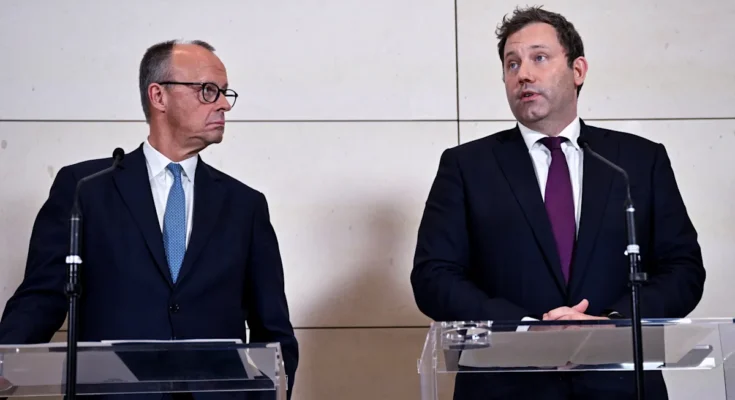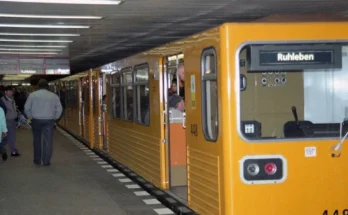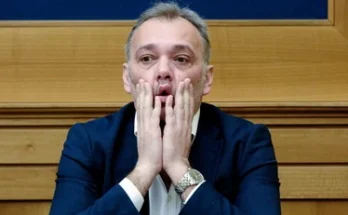Union and SPD leaders met on Thursday evening for a coalition committee meeting to decide on measures to stimulate the economy. After that, Chancellor Friedrich Merz (CDU), Vice-Chancellor Lars Klingbeil (SPD), Minister of Labor Bärbel Bas (SPD) and CSU leader Markus Söder appeared before the press.
“The German economy remains under extreme pressure,” said Bavarian Prime Minister Söder. “We are working hard against that.” The clear aim is to enable investment in Germany and create competitiveness.
SPD leaders Bärbel Bas and Lars Klingbeil saw the coalition committee’s decision as a sign of the ability of the alliance, which has often come into conflict with the Union, to act. Bas admitted that he was happy with the many results obtained. Klingbeil added: “We are doing our homework as a government.”
Following are the results of the coalition committee:
Ticket tax on air transportation
The Black-Red Coalition wants to reduce taxes on air transport tickets by July 1 2026. Merz said the amount is around 350 million euros for the benefit of the aviation industry in Germany. If this results in a tax loss, this will be recorded in the transport budget. Additionally, according to its results paper, the coalition wants to ensure, among other things, “that overall costs fall significantly by more than ten percent by 2029.”
In May 2024, aviation taxes are increased significantly. This has the potential to make passenger flights from German airports more expensive. In the coalition agreement, the CDU, CSU and SPD announced they would withdraw the increase. However, this has not been realized so far due to limited budget.
State location costs from air traffic control and security fees and air traffic taxes have more than doubled since 2019 and, according to the BDL, are the highest in Europe. International airlines are increasingly placing their aircraft in locations with lower boarding costs. In this country, domestic flights in particular and direct connections from small and medium-sized airports to other European countries were cancelled.
Industrial electricity prices
Electricity price relief is planned for industry. To achieve this goal, state-subsidized industrial electricity prices will be introduced between 2026 and 2028. Chancellor Merz said the price target is 5 cents per kilowatt hour.
power plants
In addition, the coalition committee agreed on a power generation strategy for the construction of gas-fired power plants. Eight gigawatts of electricity will be tendered in early 2026 and will be operational in 2031, Merz said. The plan is basically known. “All signals indicate that we can count on approval from the EU Commission,” the Chancellor said.
German Fund
The German fund is intended to provide a boost to investment in the economy. The Minister of Finance explained that the fund should serve as a “docking point for private capital” to mobilize private money in addition to the public investment that has already been initiated. “This is an important instrument to strengthen Germany economically.”
Recently, public funding of ten billion euros was discussed, which would incentivize private investment of 100 billion euros. Klingbeil did not provide any figures.
Investment should flow, among other things, into the start-up areas of energy and security policy. Klingbeil announced he would present the funds in more detail in the next few days with Economy Minister Katherina Reiche (CDU). The government also sent a signal to workers: “We see you, we see a threat to jobs here.”



